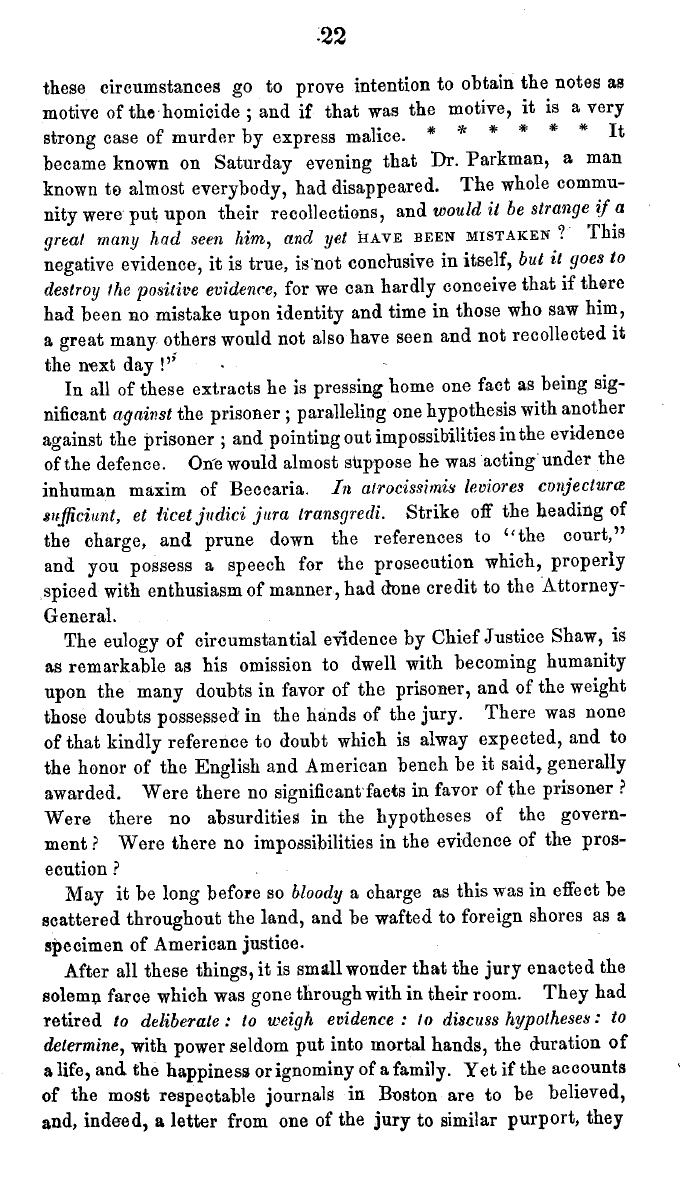|
:22
these circumstances go to prove intention to obtain the notes as
motive of the-homicide ; and if that was the motive, it is a very
strong case of murder by express malice. # * * * * * It
became known on Saturday evening that Dr. Parkman, a man
known to almost everybody, had disappeared. The whole commu-
nity were put upon their recollections, and would it be strange if a
great many had seen him, and yet FIAYE BEEN MISTAKEN ? This
negative evidence, it is true, is'not conclusive in itself, but it goes to
destroy the positive evidence, for we can hardly conceive that if there
had been no mistake upon identity and time in those who saw him,
a great many. others would not also have seen and not recollected it
the next day !'' .
In all of these extracts he is pressing home one fact as being sig-
nificant against the prisoner; paralleling one hypothesis with another
against the prisoner ; and pointing out impossibilities in the evidence
of the defence. One would almost suppose he was acting under the
inhuman maxim of Beeearia. In atrocissimis leaiores conjecture
suftciant, et licet jndici jura transgredi. Strike off the heading of
the charge, and prune down the references to "the court,"
and you possess a speech for the prosecution which, properly
spiced with enthusiasm of manner, had done credit to the Attorney-
General.
The eulogy of circumstantial evidence by Chief Justice Shaw, is
as remarkable as his omission to dwell with becoming humanity
upon the many doubts in favor of the prisoner, and of the weight
those doubts possessed in the hands of the jury. There was none
of that kindly reference to doubt which is alway expected, and to
the honor of the English and American bench be it said, generally
awarded. Were there no significant facts in favor of the prisoner ?
Were there no absurdities in the hypotheses of the govern-
ment ? Were there no impossibilities in the evidence of the pros-
ecution ?
May it be long before so bloody a charge as this was in effect be
scattered throughout the land, and be wafted to foreign shores as a
specimen of American justice.
After all these things, it is small wonder that the jury enacted the
solemn farce which was gone through within their room. They had
retired to deliberate : to weigh evidence : to discuss hypotheses : to
determine, with power seldom put into mortal hands, the duration of
a life, and the happiness or ignominy of a family. Yet if the accounts
of the most respectable journals in Boston are to be believed,
and, indeed, a letter from one of the jury to similar purport, they
|

